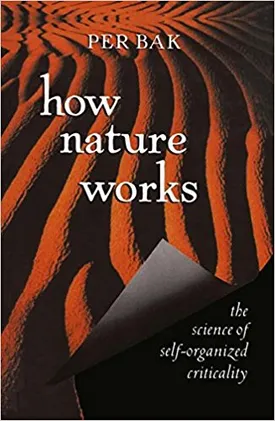Per Bak
Per Bak (1948-2002)was a Danish physicist who developed a new field of physics called complexity science. His book "How Nature Works" revolutionized the field of complexity science and its influence on the scientific community.
Per Bak was born in Copenhagen, Denmark in 1948. After receiving his undergraduate degree in mathematics and physics from the University of Copenhagen, he began his graduate studies at the University of Minnesota in the United States. During his graduate studies, he worked on chaos and complexity theory, which became a major influence on his later work.
He then returned to Copenhagen and worked as a professor at the Technical University of Denmark. He was a key figure in the development of a new field of physics called complexity science, which studies the behavior of systems with a large number of interrelated components. This new field is closely related to chaos theory, but it looks at broader phenomena like self-organization and emergence.
Bak's pioneering work in complexity science led to the publication of his book "How Nature Works" in 1996, which was widely praised and quickly became a best seller. The book examines the interconnectedness of nature and how complex systems can emerge from simple parts. It presents a novel view of nature and complex systems, and it provides a unifying and comprehensive view of the behavior of these systems.
The book has been a major influence in the scientific community and the public, inspiring many new research projects and stimulating new conversations regarding the nature of physical systems. It has been used in numerous fields of study such as dynamic systems, biology, economics, and sociology.
Bak’s influence did not stop with “How Nature Works”. He continued to publish numerous books and papers, including “Fluctuations and Scaling in Biology”, “Emergence in Complexity”, and “The Dynamics of Complex Systems”. His work in the field of complexity science has been highly influential in the scientific community and he has been widely credited for revolutionizing the field with his revolutionary theories.
Bak was also well known for his work in the fields of statistical physics and financial markets. He was a professor of physics at Cornell University for two years and was later appointed professor at the Santa Fe Institute. He also served on the editorial board of the journal Nature from 1988 to 1996.
In addition to being a physicist, Bak was also an artist. He painted abstract oils and designed jewelry, which he sold in art fairs and festivals around the United States and Europe.
Bak died in 2002 at the age of 54. He is remembered as one of the most influential physicists in the history of science and a leading figure in complexity science. His work in complexity science has helped revolutionize the field and his book "How Nature Works" continues to be a major influence in the scientific community and the public. His work remains a crucial part of many fields of science today, including economics, biology, and mathematics.

